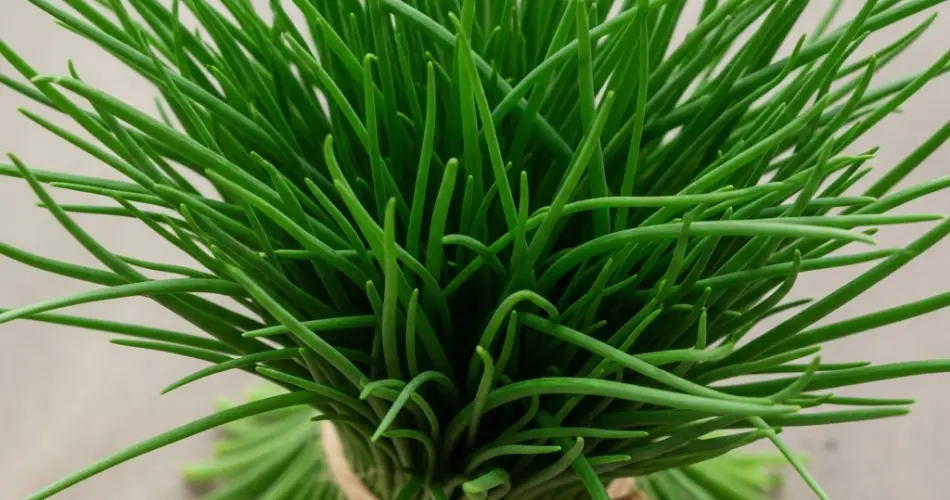Chives are more than just a flavorful addition to your kitchen garden — they’re also a powerful natural ally in pest control. Belonging to the allium family, which includes garlic and onions, chives have strong-smelling compounds that repel a variety of garden pests. By strategically using chives in your garden or as part of a homemade remedy, you can reduce the need for chemical pesticides and create a healthier growing environment for your plants.
Here’s how you can use chives as a natural pest control tool and protect your plants from common garden invaders.
1. Repel Aphids Naturally
Aphids are small, soft-bodied insects that suck the sap out of plants, often causing yellowing, wilting, and stunted growth. They can also transmit diseases between plants. Chives emit a strong scent that aphids dislike, making them a great companion plant for aphid-prone vegetables like lettuce, spinach, and tomatoes.
How to Use:
-
Interplant chives between your crops to keep aphids at bay.
-
For existing aphid problems, brew a chive spray by chopping a handful of fresh chives and steeping them in boiling water. Let the mixture cool, strain it, and spray directly onto affected plants.
2. Deter Japanese Beetles and Carrot Rust Flies
Japanese beetles are destructive pests that feed on the leaves of roses, beans, and other common garden plants. Carrot rust flies, on the other hand, target root vegetables like carrots and parsnips. The sulfur compounds in chives make them unappealing to both of these pests.
How to Use:
-
Border planting: Plant a row of chives around susceptible crops. The scent helps create a natural barrier.
-
Grow chives alongside carrots and beets to mask the scent of these vegetables, confusing and deterring root-loving insects.
3. Prevent Powdery Mildew and Fungal Issues
Chive leaves contain natural antifungal properties, making them helpful in preventing powdery mildew and other fungal diseases that affect cucumbers, squash, and roses.
How to Use:
-
Create a chive tea fungicide by chopping chive leaves and steeping them in water for 24 hours. Strain and spray this liquid on the leaves of susceptible plants weekly.
-
Combine with neem oil or baking soda for added antifungal strength if needed.
4. Improve Soil Health and Ward Off Soil-Borne Pests
Chives help improve overall soil health by deterring nematodes and other soil-dwelling pests. Their roots produce compounds that suppress harmful organisms, helping neighboring plants grow better.
How to Use:
-
Include chives in crop rotation plans or as a perennial border plant.
-
Till old chive foliage into the soil to add organic matter and deter harmful microbes.
5. Protect Tomatoes and Roses
Tomatoes and roses are both susceptible to aphids, spider mites, and black spot. Planting chives near these plants not only enhances their beauty but also helps reduce pest pressure.
How to Use:
-
Plant chives around the base of tomato and rose plants to act as a pest-repelling ground cover.
-
Use a chive-leaf mulch: chop chive leaves and scatter them around the base of vulnerable plants to deter crawling insects.
6. Natural Mosquito and Insect Repellent
Chives have a distinct scent that also repels mosquitoes and gnats. While not as strong as citronella or lavender, chives can still make a noticeable difference when planted near seating areas or walkways.
How to Use:
-
Grow clumps of chives in pots or garden beds near patios or doors.
-
Rub a crushed chive leaf between your fingers and dab it onto your skin as a temporary natural repellent.
7. Companion Planting for a Balanced Garden
Chives pair well with many vegetables, especially those in need of protection from pests. They also attract pollinators with their purple flowers, supporting the health of your entire garden.
Good Companions for Chives:
-
Carrots
-
Tomatoes
-
Beets
-
Lettuce
-
Strawberries
-
Roses
Avoid planting near beans and peas, as chives may stunt their growth.
Final Tips for Success
-
Regular Harvesting: Cutting chive leaves regularly encourages new growth and releases their pest-repelling aroma into the air.
-
Avoid Overwatering: Chives prefer well-drained soil and can rot if left in standing water, which may also attract pests.
-
Divide Every Few Years: To keep your chive plants healthy and productive, divide the clumps every 2–3 years.
Using chives as a natural pest control method is simple, sustainable, and cost-effective. Whether you grow them in garden beds or containers, chives offer both culinary benefits and protection for your plants. Integrate them into your garden design not only for flavor but for a healthier, more balanced growing environment.



